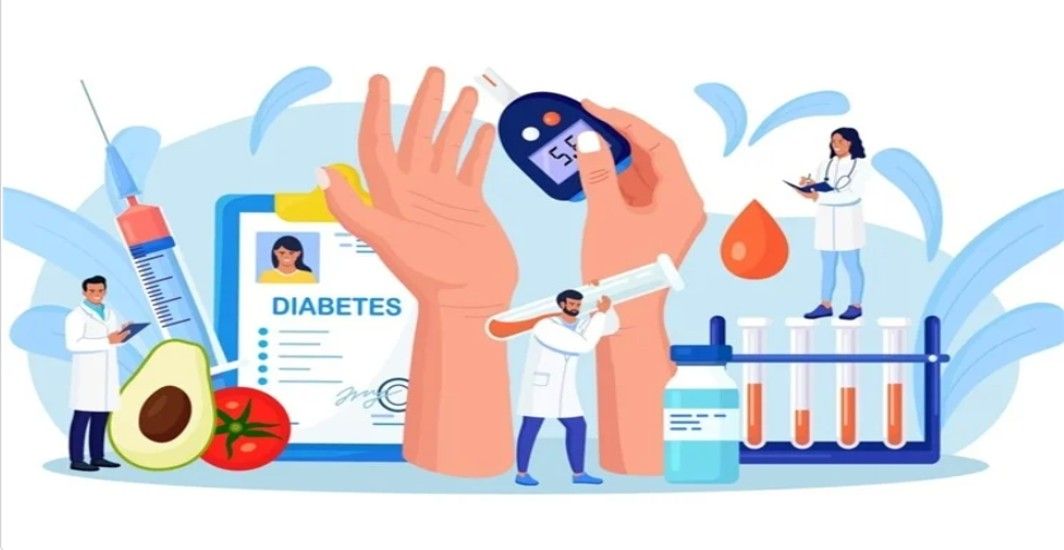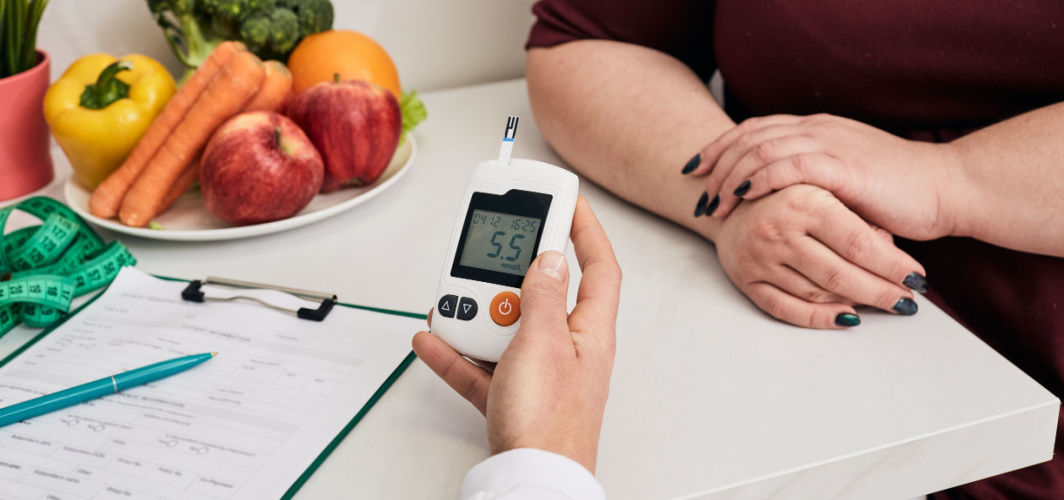Diabetes Management
Tips: Manage Medical Emergencies in Diabetes
3 min read
By Apollo 24|7, Published on - 13 February 2024
Share this article
0
0 like

Diabetes is a long-lasting condition that requires continuous management to avoid complications. Despite being careful, medical emergencies can still occur. Acting quickly and efficiently during these crucial moments can be the differentiator. Below are some vital tips for handling medical emergencies related to diabetes:
Recognize the Signs of Hypoglycemia and Hyperglycemia:
Individuals with diabetes often face emergencies about blood sugar levels, which can either become too low (hypoglycemia) or too high (hyperglycemia). Recognizing these symptoms and signs is crucial for initiating prompt and appropriate treatment.
Symptoms of Hypoglycemia:
Symptoms: Confusion, hunger, shaking, sweating, rapid heartbeat.
First Aid Tip:
1. Sit in a shaded area.
2. Consuming a tablespoon of honey/ sugar/glucose powder or one small cup of fruit juice is recommended.
3. Monitor your blood sugars for improvement after 10-15 minutes.
4. If there is no improvement, seek medical assistance.
Symptoms of Hyperglycemia:
Symptoms: thirst, frequent urination, headaches, fatigue.
First Aid Tip:
1. Consult with your doctor.
2. Avoid any strenuous activity like exercising until your next reading is < 250 mg/dl.
3. Rest and hydrate well by drinking at least 2-3 liters of water a day unless advised otherwise by your treating doctor.
Recognize the signs of Diabetic Ketoacidosis (DKA):
DKA occurs when the body does not have enough insulin to use glucose as an energy source, causing cells to use fat instead, producing toxic ketones that increase blood acidity.
Symptoms include thirst, frequent urination, fatigue, nausea, confusion, and fruity breath.
Causes of DKA include low insulin levels, not eating enough, and insulin reaction. If ketones are present and blood sugar levels are above 240 mg/dl.
Action: it is essential to seek medical help immediately, as DKA can be a medical emergency.
In case of a diabetic emergency:
It is essential to know what to do in case of a diabetic emergency. Some symptoms that may indicate a serious problem include chest pain, difficulty breathing, fever, severe headache, seizures, and loss of consciousness. If you experience any of these symptoms, seeking immediate medical attention is crucial. Diabetic emergencies can be life-threatening if not addressed promptly.
Prevention measures:
To prevent diabetic emergencies, following the treatment plan prescribed by your doctor is vital. Additionally, it is important to eat balanced, regular meals, limit alcohol and sugary drinks, treat infections early, and exercise regularly.
Emergency planning:
In preparation for a diabetic emergency, consider taking the following measures:
1. Monitor Blood Sugar: Regularly check your blood sugar levels to prevent complications.
2. Carry Rapid-Acting Glucose: Have glucose tablets or candies on hand to treat hypoglycemia.
3. Keep Emergency Contacts: Share information about your condition and emergency contacts with family and friends.
4. Use Medical ID: Carry a "Disease card" with details about your condition and treatment.
5. Seek Prompt Medical Attention: Call emergency services or visit the emergency room in severe emergencies. For extreme emergencies, call emergency services or visit the emergency room.
6. Learn CPR and First Aid: Be prepared to assist others and take the first step to safeguard yourself in emergencies.
By following these tips and staying proactive in managing your diabetes, you can increase your preparedness for medical emergencies and reduce the risk of complications, ensuring your safety and well-being.
Diabetes Management
Consult Top Diabetologists
View AllLeave Comment
Recommended for you

Diabetes Management
Managing Diabetes With Other Responsibilities
The challenge of managing diabetes while juggling daily responsibilities may seem daunting, but it's entirely achievable with the right approach. Adopting collaborative self-management strategies, seeking professional help in case of burnout, embracing team-based care, making healthier lifestyle choices, and proactively preventing complications can help maintain a balanced life.

Diabetes Management
Empowering Diabetes Management: The Role of Mindfulness and Meditation
Mindfulness meditation can play a pivotal role in managing diabetes. It enhances physical and emotional well-being by reducing stress, managing pain, improving sleep quality, and lowering sugar and A1C levels. Integrating mindfulness and meditation into your daily routine can complement your sugar management strategy, providing a holistic approach to living with your diabetes.

Diabetes Management
Diagnosing Diabetes Early: Know How To Prevent Complications
Early diagnosis of diabetes brings several significant benefits. It facilitates prompt treatment, prevents future complications, enables to plan lifestyle changes, promotes self-management, and provides support. It also helps in controlling blood sugar, avoiding long-term health complications, facilitating healthy habits, taking proper medication, and monitoring blood sugar for better disease management.
Subscribe
Sign up for our free Health Library Daily Newsletter
Get doctor-approved health tips, news, and more.
Visual Stories

8 Fruits That are Incredibly Healthy for Diabetes
Tap to continue exploring
Recommended for you

Diabetes Management
Managing Diabetes With Other Responsibilities
The challenge of managing diabetes while juggling daily responsibilities may seem daunting, but it's entirely achievable with the right approach. Adopting collaborative self-management strategies, seeking professional help in case of burnout, embracing team-based care, making healthier lifestyle choices, and proactively preventing complications can help maintain a balanced life.

Diabetes Management
Empowering Diabetes Management: The Role of Mindfulness and Meditation
Mindfulness meditation can play a pivotal role in managing diabetes. It enhances physical and emotional well-being by reducing stress, managing pain, improving sleep quality, and lowering sugar and A1C levels. Integrating mindfulness and meditation into your daily routine can complement your sugar management strategy, providing a holistic approach to living with your diabetes.

Diabetes Management
Diagnosing Diabetes Early: Know How To Prevent Complications
Early diagnosis of diabetes brings several significant benefits. It facilitates prompt treatment, prevents future complications, enables to plan lifestyle changes, promotes self-management, and provides support. It also helps in controlling blood sugar, avoiding long-term health complications, facilitating healthy habits, taking proper medication, and monitoring blood sugar for better disease management.

